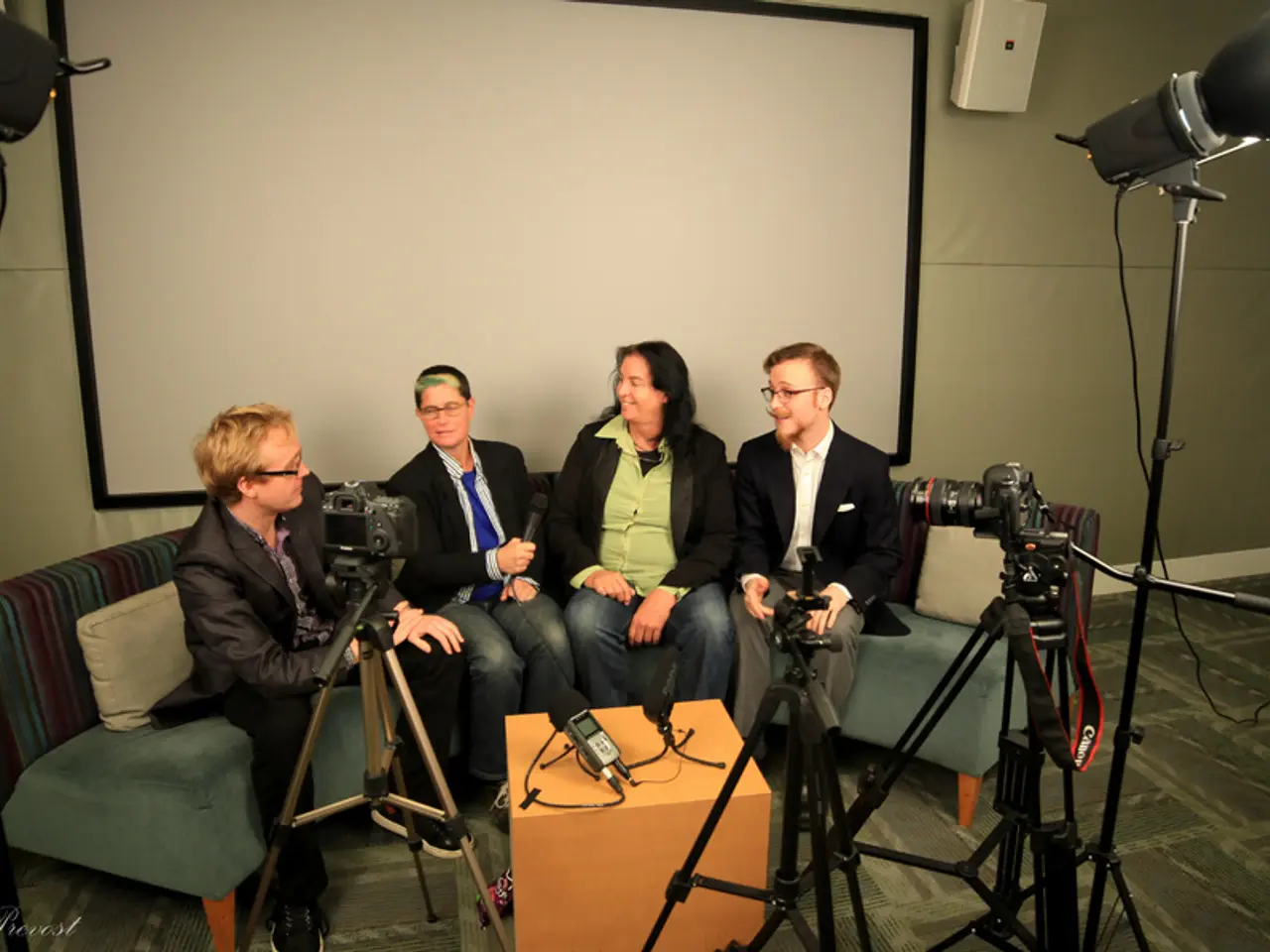Expediting immigration processes for skilled individuals within the regional authority
Baden-Württemberg, a leading German state known for its automotive industry and vibrant tech sector, faces a significant skills gap, with around 200,000 skilled workers expected to be needed by 2025[1][3]. This shortage, exacerbated by demographic changes and a competitive global labor market, has led to the approval of nearly 450,000 employment permits for third-country nationals last year, with approximately 80,000 of these applications coming from companies based in Baden-Württemberg[1].
The state agency for the Immigration of Skilled Workers in Stuttgart (for care professions) and Karlsruhe (for all other professions) has been established to address this issue[2]. Claus Paal, the president of IHK Region Stuttgart, has praised the state agency for its direct application process, active advising, and digitalization[1]. However, he also highlights the need for a standardized format for documents to reduce redundancy and suggests that the government could consolidate further immigration procedures to relieve immigration authorities[1].
Despite these efforts, there are still hurdles in skilled worker immigration, particularly in visa issuance and professional recognition[1]. The immigration and visa application process involves multiple steps, which can be slow and bureaucratic[1]. Red tape is a commonly cited barrier to faster integration of skilled immigrants[3]. Additionally, challenges remain in fully integrating foreign vocational qualifications into Germany's system, which is undergoing reforms and digitalization to modernize assessment processes[2].
Relocating immigrants face high costs and need to secure health insurance and housing deposits, which can be prohibitive and delay integration[1]. Germany is losing export market share partly due to skilled labor shortages impacting innovation and competitiveness[3].
To address these challenges, Germany has introduced streamlined policies and more visa categories like the EU Blue Card and Opportunity Card to attract global talent, with digital portals facilitating applications[1]. Leading companies in Baden-Württemberg, such as Mercedes-Benz in Stuttgart, actively sponsor skilled workers and assist with visa documentation and integration[1].
Immigrants are encouraged to gain relevant certifications and experience to better align with employer demands[1]. Germany is also modernizing vocational education and training (VET), including digitalization and simplification, to better integrate migrants and meet the demands of emerging sectors like hydrogen economy and green technologies[2].
Proposed reforms call for cutting red tape in immigration and employment procedures, improving tax incentives, and accelerating infrastructure projects to create a more conducive environment for skilled workers[3][4]. Recent government actions include speeding up construction laws and infrastructure permitting to ease housing shortages and attract talent[4].
In summary, while Baden-Württemberg and Germany face significant challenges in skilled worker immigration—including labor shortages, bureaucratic delays, and qualification recognition—they are actively improving immigration procedures, strengthening employer support, and reforming vocational training and regulatory frameworks to attract and integrate skilled migrants more effectively[1][2][3][4].
For further information, Stefanie Schlueter of our website can be contacted at s.schlueter@our website. It's important to note that a Staatsanzeiger subscription is required to subscribe to topics and save articles. The federal government is urged to act on visa issuance, as it often takes a long time. Professional recognition remains a problem due to the existence of 17 different offices responsible for recognition.
[1] "Arbeitskräftemangel in Baden-Württemberg: 539 Anträge für beschleunigte Auswanderungsbewilligung eingereicht," SWR, June 16, 2023. [2] "Modernisierung der Ausbildung in Baden-Württemberg: Digitalisierung und Vereinfachung," IHK Region Stuttgart, May 12, 2023. [3] "Baden-Württemberg: 80.000 Arbeitsbewilligungen für ausländische Zuwanderer," Tagesspiegel, June 17, 2023. [4] "Baden-Württemberg: Wie die Region sich an die Herausforderungen des Arbeitskräftemangels stellt," Die Zeit, June 18, 2023.
Economic and social policy in Germany, particularly in Baden-Württemberg, aims to address the expected skilled worker shortage of 200,000 by 2025. This includes improving immigration procedures, streamlining visa categories like the EU Blue Card and Opportunity Card, and modernizing vocational education and training (VET). Job-search and career-development programs, such as gaining relevant certifications and experience, are encouraged to better align with employer demands. The state agency for the Immigration of Skilled Workers in Stuttgart and Karlsruhe offers direct application processes, active advising, and digitalization to facilitate the immigration process, but challenges remain, particularly in visa issuance and professional recognition. Education-and-self-development opportunities could help potential immigrants prepare for the immigration process and integrate into German society more effectively.




